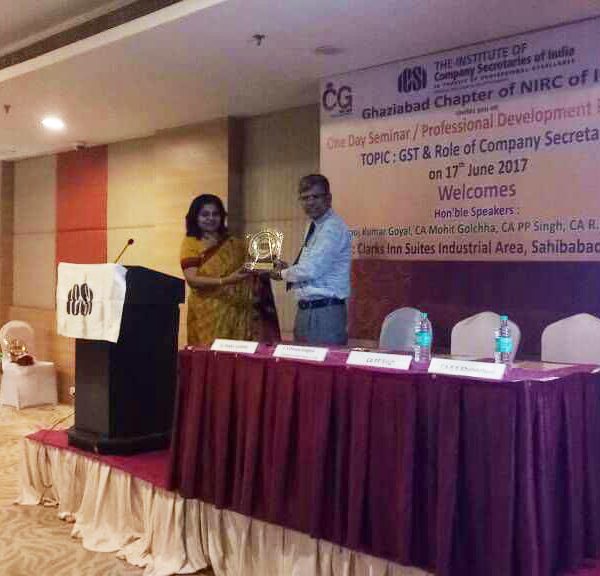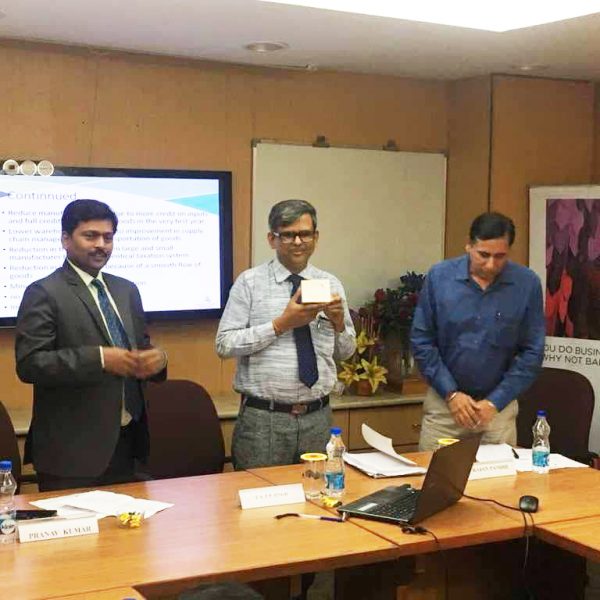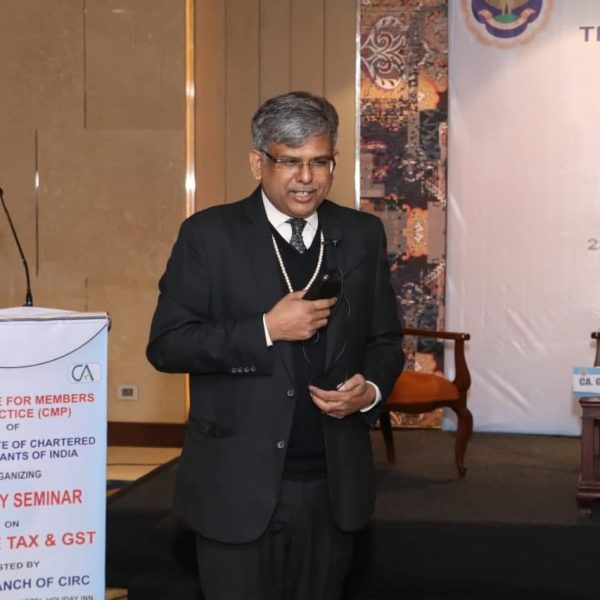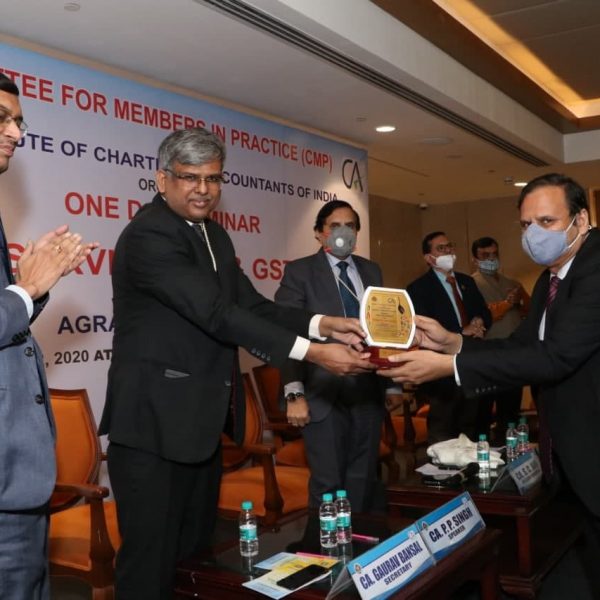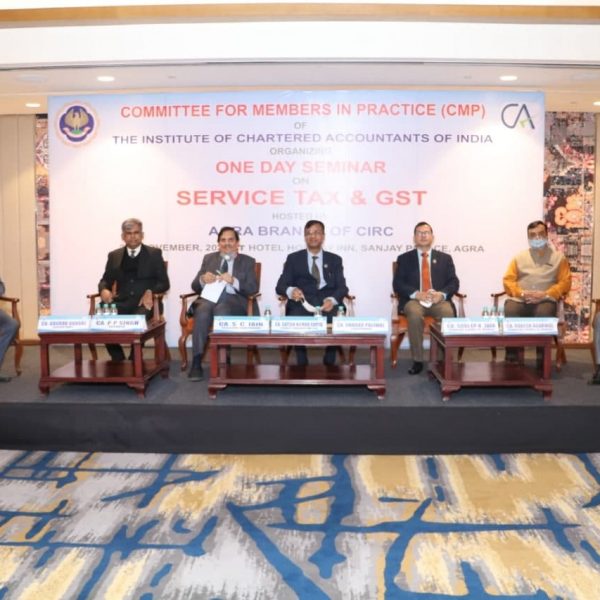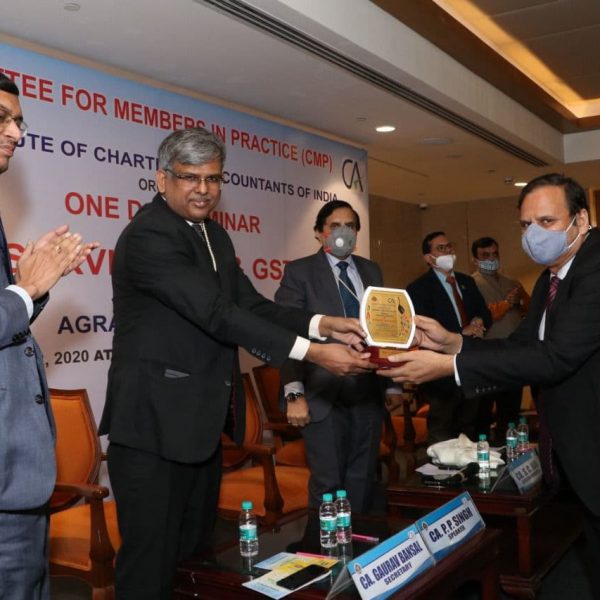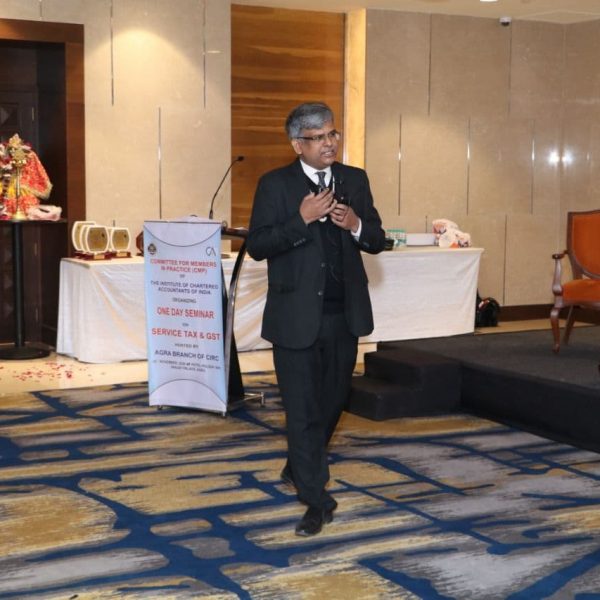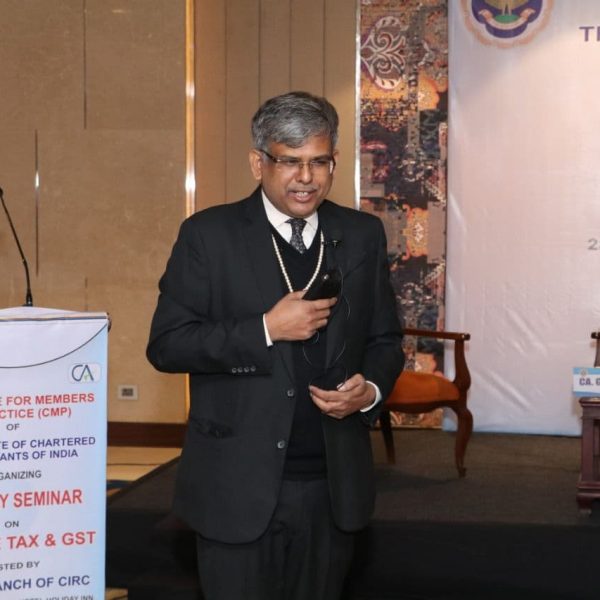Introduction: prior period expense, is one of the most controversial issues where tax officials generally tax the prior period income but disallow the prior period expenses. It is important to understand this concept in light of jurisprudence on this matter. In general, expense and income reported while determining the net taxable income of any business must be of the same financial year but due to various reasons it is not possible to account for all the expenditure or income during the FY and there may be lagging as well. In this article, an effort has been made to discuss the treatment of prior-period expenses under income tax.
Meaning of expense: A cost relating to the operations of an accounting period or to the revenue earned during the period or the benefits of which do not extend beyond that period. (Guidance Note on Terms Used in Financial Statements)
- Expenses may be the cost may be relating to the operation of a particular accounting period, irrespective of revenue earned during the accounting period or not; for example, dead rent or
- Expenses may be the cost relating to revenue earned during a particular accounting period, or
- Expenses may be the cost, the benefits of which do not extend beyond that accounting period. Such as a balance of assets w/off as no economic benefit may derive in the future.
Meaning of prior period expense: as per AS -5 notified by MCA21 applicable to companies Prior period items are income or expenses which arise in the current period as a result of errors or omissions in the preparation of the financial statements of one or more prior periods. Para 4.3
Errors in the preparation of the financial statements of one or more prior periods may be discovered in the current period. Errors may occur as a result of mathematical mistakes, mistakes in applying accounting policies, misinterpretation of facts, or oversight. (Para17)
The term ‘prior period items, as defined in this Standard, refers only to income or expenses which arise in the current period as a result of errors or omissions in the preparation of the financial statements of one or more prior periods. The term does not include other adjustments necessitated by circumstances, which though related to prior periods, are determined in the current period, e.g., arrears payable to workers as a result of the revision of wages with retrospective effect during the current period. (Para16)
Prior period as notified AS-II under 145(2):
Prior period Vs. changes in accounting estimates: Prior period items are generally infrequent in nature and can be distinguished from changes in accounting estimates. Accounting estimates by their nature are approximations that may need revision as additional information becomes known. For example, income or expense recognised on the outcome of a contingency that previously could not be estimated reliably does not constitute a prior period item. (Para18) an example may be w/o of various assets, w/o ITC if an item of supply become exempt/nil rate of tax.
Expense is booked in the books of account only when an enforceable claim can be made by a person to another so as to recover the monetary sum or set off in the books of account where the other party claim expense and recognize liabilities related thereto. Expenses are something legally enforceable and claimable by the party. It is something when liabilities are incurred or known for the first time.
Allowability of expenditure in the year of crystallization: Normally where the mercantile system of accounting is followed, expenses relating to the relevant year are accounted for in that year. However prior period expenses had to be allowed in subsequent years only when such expenses crystallized. A liability though pertaining to an earlier year is said to accrue when it actually crystallizes and becomes ascertainable and legally enforceable. Refer to, Wolkem (P) Ltd. v. CIT (1996) 54 TTJ (JP-Trib) 414, Kumar Aerosoles (P) Ltd. v.CIT (1996) 55 TTJ (Del-Trib) 385 and Sarvaraja Textiles Ltd.v. CIT (1995) 54 ITD 612 (Hyd-Trib).
In Bearingpoint Property Services (P) Ltd.v.Dy.CIT 2014 TaxPub (DT) 4064 (Bang ‘B’ – Trib) : (2014) 35 ITR (Trib) 177 (Bang ‘B’-Trib), it was held that in the light of the admitted position that the expenditure in question was wholly and exclusively for the purpose of business and that the same was genuine, the fact that the expenditure relates to an earlier period could not be a ground to deny the deduction, especially when factually crystalisation of liability during the previous year had not been disputed. Therefore, the expenses claimed by the assessee were directed to be allowed, as such these expenses were allowed though related to prior period.
When are Liabilities to pay to crystalize?
Some of the criteria for crystallization of liability upon the assessee are
- When the claim of liability was made upon the assessee, such as a decree or order from a court or another judicial forum to pay- an act of another party bind or fixes the liability – requires recognition in books
- when the assessee had accepted the liability to make the payment, -a self-act bind or fixes the liability – recognition in books
- whether there was any statutory order enforcing liability on the assessee- under statutory provision an order of tax or any other authority,
- when the payment in respect of the liability was made. Voluntary assuming liabilities payment made.
- when the fraud was detected in case of liability arising from fraud committed by employees.
Claim by a party and accepted by the assessee during CY: If any liability, though relating to the earlier year, depends upon making a demand and its acceptance by the assessee and such liability has been actually claimed and paid in the later previous years it cannot be disallowed as deduction merely on the basis of the accounts are maintained on the mercantile basis and that it related to a transaction of the previous year.“Saurashtra Cement & Chemical Industries Ltd. v. CIT [1995] (Gujarat) 80 Taxman 61/213 ITR 523,
Loss on account of fraud detected in succeeding FY: Where the assessee-company debited a sum to its account on account of financial irregularities committed by the erstwhile chief finance officer and an employee from the accounts department, it was held that since fraud and financial irregularities were detected during the year under consideration, the claim of such financial irregularities had to be allowed during the year under consideration. [Asstt. CIT v. Boots Piramal Health Care Ltd. [2017] 81 taxmann.com 434 (Mum. – Trib.)].
Loss on account of embezzlement: The Hon’ble Supreme Court in the case of Associated Banking Corpn. of India Ltd. v CIT [1965] 56 ITR 1 has held that “the loss by embezzlement must be deemed to have occurred when the assessee came to know about the embezzlement and realized that the amount embezzled could not be recovered”.
When reimbursement is denied same can be claimed as an expense: Where the other party to the joint venture agreement refused to reimburse the sale promotion expenditure incurred by the assessee within the terms of the agreement, it was held that the claim for expenditure had crystallized in the year when the other party refused to reimburse. Merely because expenditure related to the prior period could not be a reason to disallow the same. [Citadel Fine Pharmaceuticals (P.) Ltd. v. Asstt. CIT [2018] 92 taxmann.com 79 (Chennai – Trib.)]
A fee of preceding FY raised now by a party: Custodial Fees paid to Central Depository Services India Ltd. for F.Y. 2008-09 were raised during A.Y. 2010-11, it was held that liability to payment crystallized during the A.Y. 2010-11 and, therefore, it was allowable in that year, even though it pertained to A.Y. 2009-10. [Dy. CIT v. Zydus Wellness Ltd. [2016] 76 taxmann.com 328/[2017] 162 ITD 604 (Ahd. – Trib.)].
expenses claimed after the closure of books of accounts: The assessee bank had a number of branches all over India and certain expenses of the previous year were claimed after the closing of books of account, which had been clarified by the auditor in the audit report. The genuineness of the expenses had not been doubted by the lower authorities. Therefore, the prior period expenses claimed by the assessee had crystallized during the year under consideration. [State Bank of Bikaner & Jaipur v. Asstt. CIT [2016] 69 taxmann.com 365 (JP – Trib.)].
Liability crystallized on the discovery of errors and omissions – Where prior period expenditure arises as a result of error or omission in preparation of the financial statement of earlier years as explained in Accounting Standard-5 issued by ICAI, The assessee had a number of branches all over the India and certain expenses of the previous year were claimed after the closing of books of account, which had been clarified by the auditor in the audit report. The genuineness of the expenses had not been doubted by the lower authorities. Thus, these expenses were allowable.[State Bank of Bikaner & Jaipur’s v. Asstt. CIT [2016] 69 taxmann.com 365 (JP – Trib.)].
Liability crystallizes on receipt of bills by the company: Liability for the claim would arise in the case of the company when bills relating to expenses are submitted to the company. For example, the bills relating to travel for purposes of the business of the assessee are submitted to the assessee in the current year for reimbursement. When the assessee has received the bills the liability for payment arises and further, when reimbursements are made in the current year the assessee can claim such expenses against the business income of the current year. They would be allowable.[ Kellogg India (P.) Ltd. v. Asstt. CIT [2013] 33 taxmann.com 397 (Mum. – Trib.); CIT v. Jagatjit Industries Ltd. [2010] 7 taxmann.com 21/194 Taxman 158 (Delhi)].
Deduction claimed for provision made for optical fiber cable (OFC) charges on account of payment to the Department of Telecom (DOT). AO held that such provision pertained to prior period expenses and, therefore, the same could not be allowed. It was held that where the bill of DOT was received during the current financial year which meant that expenditure crystallized during the year under consideration, the claim of deduction of provision of OFC charges was allowable. [TATA Communications Ltd. v. Jt. CIT [2013] 32 taxmann.com 197/57 SOT 1 (Mum. – Trib.); Sutna Stone & Lime Co. Ltd. v. CIT [1991] 192 ITR 478/54 Taxman 121 (Cal.); Jagdish Prasad Gupta v. CIT [2017] 85 taxmann.com 105/250 Taxman 308/397 ITR 578 (Delhi)]
A claim of additional incentive based on target sales: Liability for additional incentive would crystallize for the assessee only when the assessee was informed of actual sales made by dealers and, therefore, it was entitled to claim a deduction of such liability in the relevant assessment year. [CIT v. Shri Ram Pistons & Rings Ltd. [2008] 174 Taxman 147 (Delhi)].
Liability crystallizes on the execution of the agreement – Where the assessee incurred expenditure between January to March 2002 but the agreement was executed in August 2002 then the assessee’s liability for expenditure under the agreement would arise and accrue in August 2002, when the agreement was executed and, therefore, its liability to pay for the period January 2002 to March 2002 arose and crystallized in August 2002. [CIT v. Exxon Mobil Lubricants (P.) Ltd. [2010] 8 taxmann.com 249/328 ITR 17 (Delhi)].
Liability crystallizes when the decree is passed by the Court and no appeal against the decree is pending: Where the assessee disputed its liability, including the liability to pay interest after the date of the award, there was no legal liability on the part of the assessee to pay interest. It could not be said that there was any liability in praesenti(at present times) on the part of the assessee till the time the High Court finalized the issue and passed a decree on 28-1-2000 after the end of the accounting year. The liability to pay interest crystallized only on the High Court’s passing a decree and awarding interest. [National Agrl. Co-operative Federation of India Ltd. v. Jt. CIT [2010] 122 ITD 24 (Delhi)].
If tax is deducted late or tax deducted but deposited late in the next FY, such expenses can be claimed in the next AY only when tax is deposited u/s40a(i) – such expenses can’t be disallowed as prior period expenses. They will be allowed in the year when tax deducted thereon is paid before filing the return for that year. [ CIT v. SMCC Construction India Formerly Mitsui Kensetsu India Ltd. [2011] 198 Taxman 181/[2010] 320 ITR 534 (Delhi)]
Refund of the amount borrowed for capital expenditure but interest to be paid on such borrowing: interest paid on borrowed capital earlier included in the cost of the land but later on, when the transaction did not mature and borrowed capital had to be refunded to the bank with interest then the claim for interest was allowable in the year when the transaction did not mature. [IT v. Nav Sansar Agro Products [2017] 88 taxmann.com 480/392 ITR 399 (Delhi)]
If income is to be considered, then automatically expenditure in relation to such income needs to be taken care of. [Hindustan Gum & Chemicals Ltd. v. ITO [2008] 23 SOT 143 (Kol.)] Thus, the tax authorities are not justified in the disallowing entire amount of the prior period expenses, while assessing the entire amount of the prior period income. [ Mazagaon Dock Ltd. v. ITO [2017] 85 taxmann.com 213 (Mum. – Trib.)].
Tax neutral position: tax liability same irrespective of the year of the claim of expenditure, the contention raised by the assessee that no deduction in respect of these expenses was allowed in the prior years and the tax rate in the earlier years and in the year under consideration were the same and therefore irrespective of the year of deduction allowed, the revenue’s effect was taxed neutral.
Nonsuch Tea Estate Limited Vs. Commissioner of Income Tax (supreme court) [1975] 98 ITR 189 (SC)
Commissioner of Income Tax Vs. West Chusick Coal Company Limited 129 ITR 62 Cal HC
PCIT Vs. Adani Enterprises Limited Tax Appeal No. 566 of 2016 (Gujrat HC)
Conclusion: expenditure can be claimed as a deduction in the year in which it is claimed by another party against the assessee or ascertained or legally created or crystallized or determined or settled between parties or liabilities to pay to arise or are legally recognized and enforceable so disallowance in the name of a prior period expense. while reporting in tax audit reports or making assessments AO must take this into account. For any clarification, readers may feel free to contact the author.

